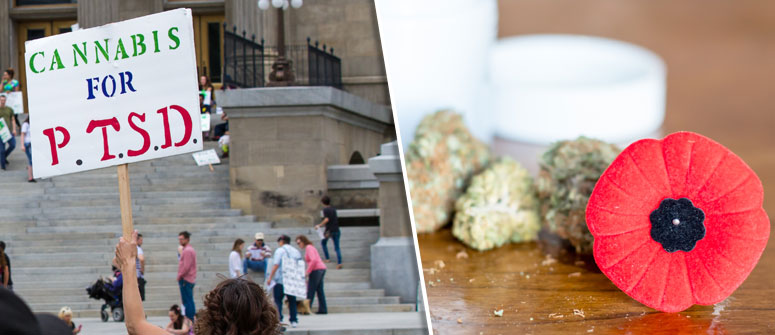What are the effects of cannabis on memory?

“Dude, where’s my car?” Wondering about the effects of cannabis on memory? Find out how cannabis use may influence your memory.
“Dude, where’s my car?”
From Cheech and Chong to Harold and Kumar and everyone in between; stoners are commonly characterized as happy, yet forgetful and absent-minded. And most people who use or have used cannabis would agree that, after taking a few tokes from a J or blunt, you're probably a little more likely to misplace things or forget why you just got up out of your chair.
But what exactly does science say about cannabis use and its effects on memory?
Memory is generally divided into two categories, namely short-term and long-term memory.
Short-term memory is best described as the ability to retain information in an active state so that is readily available for a short period of time. Short-term memory usually persist for about 15-30 seconds.
Long-term memory, on the other hand, is the ability to store and remember information for longer periods of time indefinitely.
Long-term memory can be further broken down into different categories, including explicit memory, implicit memory, and autobiographical memory. To avoid getting too technical, we won't explore these in any more detail.
Science suggests that cannabis use impairs both our short-term and long-term memory. It is generally believed that the main cannabinoid responsible for cannabis’ negative effect on memory is tetrahydrocannabinol, or THC, the main psychoactive compound found in cannabis.
While it isn’t clear how exactly THC impairs memory function in humans, it is believed that it is caused by the compound's effect on the hippo-campus, an area of the mammalian brain responsible for managing memory, learning, and emotions.
The hippo-campus seems to have the highest concentration of CB1 receptors in the brain, which are one of the main receptors activated by THC and other cannabinoids.
Cannabidiol (or CBD) another major cannabinoid often praised for helping in the treatment of epilepsy (among various other conditions), actually has surprising effects on memory which we’ll explore briefly later.
SHORT-TERM EFFECTS

One of the most obvious effects of cannabis is its disruption of short-term memory. When under the influence of cannabis, it basically becomes harder to make new memories while you’re actually high.
This disruption of short-term memory is basically what causes that typical forgetfulness you experience while under the influence, like forgetting where you put something or what you just got up to. Cannabis also impairs our working memory, a kind of short-term memory that we use when trying to learn something new.
A 2004 study conducted by researched from the San Francisco Brain Research Institute and SAM Technology tested the working memory in 10 adults immediately after consuming cannabis.[1]
After consuming cannabis, the participants were put through a spatial N-back test requiring them to work through a set of symbols and images and identify which ones were shown to them only a few steps earlier. The responses from users who smoked cannabis were noted to be much slower and less accurate than those given a placebo.
Cannabis also affects our ability to recall events that happened while we’re high as well as for a brief period while the high is wearing off.
These short-term memory effects tend to be temporary. A 2002 study by psychopharmacology researchers at University College London showed that, while THC significantly impaired recall abilities up to two hours after consumption, it had no persistent residual effects 24 to 48 hours.[2]
LONG-TERM EFFECTS
The effects of cannabis on our long-term memory, unfortunately, are much more concerning.
A 2016 study published in the JAMA Internal Medicine journal found a strong association between long-term exposure to marijuana and worsening verbal memory in middle age people (aged between 18 and 30 years).[3] The study included a sample of over 5,000 participants who previously enrolled in an unrelated study looking at coronary artery risk development in young adults.
During follow-up visits, the participants were asked to report if they had used cannabis within the last month prior to the visit. They were then also made to sit various cognitive tests that looked at verbal memory, processing speed and executive function.
The study found that long-term use of marijuana had a significant impact on verbal memory. On average, for every 5 years of cannabis use, 50% of participants forgot 1 word from a list of 15 presented to them as part of these tests.
HOW DOES CBD AFFECT MEMORY?
THC has definitely stolen the spotlight when it comes to studies examining the effects of cannabis use on memory. However, CBD has shown to have some surprising effects of its own.
While it’s effects on memory aren’t completely understood, one study published in the British Journal of Psychiatry in 2010 suggests that higher concentrations of CBD may actually help to offset the brain impairment caused by THC.[4]
The US National Institute of Mental Health also reported that CBD may help to reduce brain damage caused by binge drinking. Researchers at the institute found that the combined administration of CBD with ethanol reduced alcohol-induced cell death in the hippocampus and entorhinal cortex of the brain by up to 60%.
Studies have also suggested that CBD’s neuroprotective properties call for further investigation of the compounds ability to prevent the onset of diseases like Parkinson’s, dementia, or Alzheimer’s.
Again, the research into this field is very new and limited, but it is definitely worth noting.
CANNABIS AND PTSD (POST-TRAUMATIC STRESS DISORDER)

So, we’ve covered the effects of cannabis use (both short and long-term) on memory, and the evidence is pretty clear; cannabis (and especially THC) impair our memory on almost all levels.
But what if we told you there was a kind of silver-lining to these somewhat concerning news?
While we don’t generally think of memory impairment as a good thing, it can be particularly beneficial in the treatment of anxiety-based disorders like PTSD.
Treating and managing the symptoms of PTSD with medical marijuana has received a lot of attention lately and there is reasonably scientific evidence to show that cannabis may help to disrupt the recollection of disturbing memories caused by combat, violence, sexual abuse, or assault.
Veterans commonly admit to using cannabis as a way of treating PTSD induced by combat instead of their regular prescribed medication.
Research has consistently shown that the human endocannabinoid system plays a significant role in PTSD.
Furthermore, people with PTSD are believed to have a greater availability of CB1 receptors. Hence, marijuana use may actually help treat PTSD symptoms at least in the short run. However, as is commonly the case with cannabis research, more evidence is needed to confirm this.
- ^ NCBI, Effects of marijuana on neurophysiological signals of working and episodic memory, retrieved November-19-2018
Link - ^ NCBI, Cognitive and subjective dose-response effects of acute oral Delta 9-tetrahydrocannabinol (THC) in infrequent cannabis users., retrieved November-19-2018
Link - ^ NCBI, Association Between Lifetime Marijuana Use and Cognitive Function in Middle Age: The Coronary Artery Risk Development in Young Adults (CARDIA) Study., retrieved November-19-2018
Link - ^ NCBI, Impact of cannabidiol on the acute memory and psychotomimetic effects of smoked cannabis: naturalistic study: naturalistic study [corrected]., retrieved November-19-2018
Link
.jpg)
.jpg)

.jpg)
